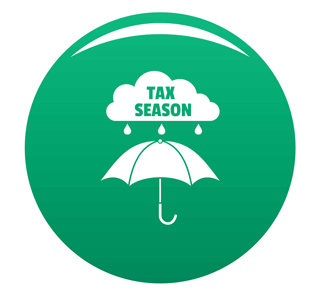Tips on how to avoid abusive tax return preparers
By Randy Hutchinson, President of the BBB
(Reprinted from The Jackson Sun)
I’m already seeing signs on the roadside for tax return preparation services. Setting aside what the method of advertising might suggest about the company, some may be legitimate and some not.
The IRS defines an “abusive return preparer” as one who files false returns claiming, for example:

- Inflated personal or business expenses
- False deductions
- Unallowable credits or excessive exemptions, such as the Earned Income Tax Credit
The IRS initiated 252 investigations in FY2016 and 202 people were sentenced, with 78% of them incarcerated (some cases may span multiple fiscal years and the numbers don’t include actions brought by law enforcement agencies). The preparers’ clients may or may not have known their returns were fraudulent.
Examples of IRS investigations include:
- A California woman who prepared client tax returns claiming fake business losses, charitable contributions and medical expenses.
- A Texas man who devised a scheme to prepare false tax returns and then stole the clients’ refunds.
- Massachusetts and New Jersey women who, in unrelated cases, prepared one set of returns to send to the IRS and a second set of returns to show to their clients. The IRS versions claimed a larger refund and they kept the difference by having the refunds deposited to their accounts.
BBBs nationwide received over 2,300 complaints about tax preparers last year. Problems included errors that caused the taxpayer to have to pay a fine, higher fees than expected, and preparers who weren’t responsive to requests for help in an audit. A local woman complained that her tax preparer didn’t file her return in a timely manner, leading to problems with the IRS, and that he threatened her with physical harm when she complained to him.
Taxpayers are ultimately responsible for the accuracy of their returns whether prepared by them or a tax preparer. Tax evasion is a felony punishable up to 5 years imprisonment and a $250,000 fine.
The IRS and BBB offer these tips for selecting a reputable preparer:
- Check out the preparer with the BBB. We can provide a list of BBB accredited tax preparers.
- Avoid return preparers who claim they can obtain larger refunds than other preparers.
- Avoid preparers who base their fee on a percentage of the amount of the refund.
- Use a reputable tax professional who signs and enters a preparer tax identification number (PTIN) on your tax return and provides you with a copy for your records.
- Consider whether the individual or firm will be around to answer questions about the preparation of your tax return months, or even years, after the return has been filed.
- Never sign a blank tax form. Review all the information to be sure there aren’t any false deductions, exemptions or credits. Get a copy of the return.
The BBB anticipates scammers will try to exploit the uncertainty of the government shutdown as to whether the IRS will delay processing tax returns. The IRS confirmed it began processing returns January 28 and will provide refunds to taxpayers as scheduled.
Even though the shutdown has ended, scammers will likely try to extract confidential information or money from people by impersonating the IRS in emails and phone calls. They do it every year, so be on guard.
In This Issue...
- Message from President Tracy D. Hall
- HR Corner: Human Resources to host inaugural pre-retirement seminar
- Welcome aboard, new team members
- Don’t miss the Lunch and Learn series
- Mental Health Corner: The social media cleanse: Can you do it?
- CCAMPIS child care centers are an affordable, convenient option
- Farewell: Retiree Sandra Murrell
- Tips on how to avoid abusive tax return preparers
- ALUMNI KUDOS: Deborah Reed elected Tennessee Democratic Party secretary
- M.O.S.T. counselor Sherman Robinson wins inaugural Employee of the Month Award
- Tennessee Reconnectors share student experiences at inaugural roundtable
- Female Southwest employees take advantage of self-defense training
- Southwest opens its doors to Vatterott and L’Ecole Culinaire students
- Southwest and Greater Memphis Chamber launch new global logistics course
- Workforce Development and Continuing Education facilitators prepare for spring semester
- Imagination play pits historical figures in literary rivalry
- Southwest to host 26th National African American Read-In Feb. 25
- THEC presents the Harold Love Awards
- Saluqi Corner
- Southwest: In the News